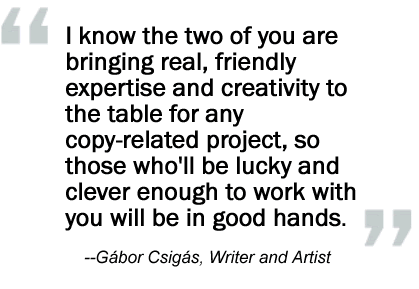Join our new Facebook Group, Fifteen Minutes with a Fiction Editor, to get tips about writing fiction, have two professional editors answer your questions, and maybe get some free critique. No strings attached.
Writing is magic.
“Writing is magic, as much the water of life as any other creative art. The water is free. So drink. Drink and be filled up.” – Stephen King, “On Writing”
The act of writing is seductive, glorious, maddening. On good days, the words are like lightning, ripping through you from somewhere else and making you sparkle in their wake. There’s no feeling like it on (or off) Earth. On bad days, it’s more like hammering your forehead repeatedly into a flint wall and hoping the blood-spatters form words. Even at the lowest moments however – when you’re certain you’re the worst hack who ever lived and that even fire would turn from your manuscript pages in disgust – you can’t forget the truth: you are a creator.
The act of writing is seductive, glorious, maddening. On good days, the words are like lightning, ripping through you from somewhere else and making you sparkle in their wake. There’s no feeling like it on (or off) Earth. On bad days, it’s more like hammering your forehead repeatedly into a flint wall and hoping the blood-spatters form words. Even at the lowest moments however – when you’re certain you’re the worst hack who ever lived and that even fire would turn from your manuscript pages in disgust – you can’t forget the truth: you are a creator.
|
It’s less obvious though that a finished piece of writing is constructed like a cake, in layers. You start with an idea, and perhaps follow it up with a structure, an outline, a chapter-by-chapter plan, and/or detailed studies of the characters and settings. Then you actually write the darned thing, sentence by sentence. Lots of people find this part seriously daunting, because they have an idea that somehow they have to get it ‘right’. They couldn’t be further from the truth.
Writing is very forgiving, much more so now than in the age of typewriters. Your completed first draft is only another layer. Depending on how the writing went – and what day it is today – you may want to tinker with the structure, change around the characters, ramp up the pacing, work on sparkling dialogue and evocative description, correct glaring errors, or throw the whole thing into a dustbin and sob. This is perfectly normal. Almost all professional writers use their second draft to tighten pacing, strengthen characterization, and repair plot holes. There’s usually another round of edits after that, too – decorating the cake by improving the words themselves, making the writing sing. |
The point is that there’s a big difference between a first draft and a finished piece. There is nothing, absolutely nothing, in a manuscript that can’t be fixed with enough determination and love. Self-editing skills are a fabulous thing, and we’d encourage every writer to become an expert self-editor. It’s not exactly the same as writing however, and we recognize that. This is where we can help you.
You’ll find our rates stated clearly and openly near the top of the editing services page, on a cents per word basis. We are not a front for a huge basket of anonymous people, so you know exactly who we are. It also means that we only charge you for the actual work we do. There are no hidden fees anywhere, administrative or otherwise, and you’ll always be in direct contact with whichever of us is working on your document. If you have any questions whatsoever, please just ask – we’re both extremely friendly, I promise.
You’ll find our rates stated clearly and openly near the top of the editing services page, on a cents per word basis. We are not a front for a huge basket of anonymous people, so you know exactly who we are. It also means that we only charge you for the actual work we do. There are no hidden fees anywhere, administrative or otherwise, and you’ll always be in direct contact with whichever of us is working on your document. If you have any questions whatsoever, please just ask – we’re both extremely friendly, I promise.
Join our Facebook Group, Fifteen Minutes with a Fiction Editor, to get tips about writing fiction, have questions answered by two professional editors, and maybe get some free critique. It's free, no strings attached.



